There
is always hope. Depression blinds us to that
fact.
If we can somehow hold on to our hope, just maybe we can find a way to get through.
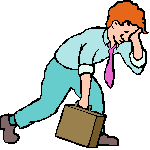
An
estimated one in ten Americans suffer from depression,
an illness
that affects both physical and mental well-being.
Often chronic in nature, depression can be triggered
by adverse life circumstances or occur simply "out
of the blue." Frequently, a combination of
genetic, psychological and environmental factors
contribute
to the onset of depression. Depression is much misunderstood by the public, yet it affects many people
of all ages. It is estimated that one in five people will suffer from depression
at some point in their lives.

|
|
“That's the thing about depression: A human
being can survive almost anything, as long as she sees
the end in sight. But depression is so insidious, and
it compounds daily, that it's impossible to ever see
the end.”
? Elizabeth Wurtzel, Prozac Nation |

Without emotion, man would
be nothing but a biological computer. Love, joy,
sorrow, fear, apprehension, anger,
satisfaction, and discontent provide
the meaning of human existence.
Arnold M. Ludwig---1980 |
First I want to warn you: this is a somewhat
long letter.
Lately Melissa hasn't felt like herself. Her friends
have noticed it, too. Lita was surprised when Melissa
turned down her invitation to go to the mall last Saturday
(Melissa could always be counted on for Retail Therapy!).
There was really no reason not to go, but Melissa just
didn't feel like it. Instead, she spent most of the
weekend sleeping.
Staying in more than usual isn't the only change
in Melissa. She's always been a really good student.
But over the past couple of months her grades have
fallen and she has trouble concentrating. She forgot
to turn in a paper that was due and is having a
hard time getting motivated to study for her finals.
Melissa feels tired all the time but has difficulty
falling asleep. She's gained weight too.
When her mother asks her what's wrong, Melissa
just feels like crying. But she doesn't know why.
Nothing particularly bad has happened. Yet she
feels sad all the time and can't shake it.
Melissa may not realize it yet, but she
is depressed.
“Imagine a society
that subjects people to conditions that
make them terribly
unhappy
then gives them the drugs to take away their
unhappiness. Science fiction It is already
happening to some extent in our own society.
Instead of removing the conditions that make
people depressed modern society gives them
antidepressant drugs. In effect antidepressants
are a means of modifying an individual's
internal state in such a way as to enable
him to tolerate
social conditions that he would otherwise
find intolerable.”
? Theodore Kaczynski
|
|
What causes
depression?
Sometimes friends or family members recognize
that someone is depressed. They may respond with
love, kindness, or support, hoping that the sadness
will soon pass.
But not everyone recognizes depression when
it happens to someone they know.
Some people don't really understand about
depression. For example, they may react to a
depressed person's low energy with criticism,
yelling at the person for acting lazy or not
trying harder. Some people mistakenly believe
that depression is just an attitude or a mood
that a person can shake off. It's not that easy.
Sometimes even people who are depressed don't
take their condition seriously enough. Some people
feel that they are weak in some way because they
are depressed.
|

Being clinically depressed is very different from
the down type of feeling that all people experience
from time to time. Occasional feelings of sadness
are a normal part of life, and it is that such
feelings are often colloquially referred to as "depression." In
clinical depression, such feelings are out of proportion
to any external causes. There are things in everyone's
life that are possible causes of sadness, but people
who are not depressed manage to cope with these
things without becoming incapacitated.
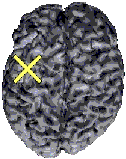
As one might expect, depression can present itself
as feeling sad or "having the blues".
However, sadness may not always be the dominant
feeling of a depressed person. Depression can also
be experienced as a numb or empty feeling, or perhaps
no awareness of feeling at all. A depressed person
may experience a noticeable loss in their ability
to feel pleasure about anything. Depression, as
viewed by psychiatrists, is an illness in which
a person experiences a marked change in their mood
and in the way they view themselves and the world.
Depression as a significant depressive disorder
ranges from short in duration and mild to long
term and very severe, even life threatening.
“There are wounds that never show
on the body that are deeper and more hurtful
than
anything that bleeds.”
? Laurell K. Hamilton, Mistral's Kiss |
Depression
involves the brain's delicate chemistry — specifically,
it involves chemicals called neurotransmitters.
These chemicals help send messages between nerve
cells in the brain. Certain neurotransmitters regulate
mood, and if they run low, people can become depressed,
anxious, and stressed. Stress also can affect the
balance of neurotransmitters and lead to depression.
The most common drugs used
today to treat depression focus their attention
on the brain chemicals, serotonin and norepinephrine.
Adverse
side effects of antidepressant drugs
Increasing
evidence, however, now indicates that another
player in the brain,
corticotropin-releasing factor, should share
the spolight. Studies have shown that abnormally
high activity of this stress hormone is present
in many cases of depression. Furthermore, research
shows that drugs that block the action of corticotropin-releasing
factor have the potential to lift the dismally
low spirits of the depressed. The new insights
help explain how depression arises and may lead
to new options for prevention and treatment.BT11 |
It is important for people
to know that:
Depression is an illness that
can affect anyone at any age.
It is not connected with and does not develop into insanity |
SYMPTOMS
OF DEPRESSION
Depression is an illness where the feelings of
hopelessness and helplessness, linkled to the inability
to concentrate, may make it hard for some people
to carry out normal daily activities.
Depression is an illness with a wide range of physical and psychological
symptoms, which sometimes make it hard to recognise and understand.
“The best thing for being sad," replied
Merlin, beginning to puff and blow, "is
to learn something. That's the only thing that
never fails. You may grow old and trembling in
your anatomies, you may lie awake at night listening
to the disorder of your veins, you may miss your
only love, you may see the world about you devastated
by evil lunatics, or know your honour trampled
in the sewers of baser minds. There is only one
thing for it then — to learn. Learn why
the world wags and what wags it. That is the
only thing which the mind can never exhaust,
never alienate, never be tortured by, never
fear or distrust, and never dream of regretting.
Learning
is the only thing for you. Look what a lot
of things there are to learn.”
? T.H. White, The Once and Future King |
Personality may play a part in depression.
Although anyone can become depressed under particular
circumstances, some people seem
to be more vulnerable than others. This may be because of things
that have happened in childhood, such as abuse, or because of
our individual make up (including body chemistry).
A lot of effective, intelligent and creative people suffer from
depression and yet make an outstanding contribution to life.
Often, information about their depression is only revealed after
their
death, as people misunderstand the illness. Amongst such people
are
 Florence
Nightingale and Florence
Nightingale and
 Sir
Winston Churchill, who used to call depression
his "black dog". Depression can
effect anyone and does not reduce your
value as a human being. Sir
Winston Churchill, who used to call depression
his "black dog". Depression can
effect anyone and does not reduce your
value as a human being.
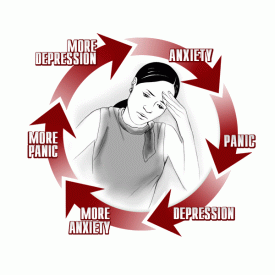
The most common
symptoms are set out below . If these have been
experienced for more than two weeks it is essential
to seek help. People may suffer from two or three
of these symptoms but are unlikely to experience
them all.
 Feelings
of helplessness and hopelessness. Feelings
of helplessness and hopelessness.
 Feeling
useless, inadequate, bad. Feeling
useless, inadequate, bad.
 Self
hatred, constant questioning of thoughts
and actions, an overwhelming need for reassurance. Self
hatred, constant questioning of thoughts
and actions, an overwhelming need for reassurance.
 Being
vulnerable and "over-sensitive". Being
vulnerable and "over-sensitive".
 Feeling
guilty. Feeling
guilty.
 A
loss of energy and motivation, that makes
even the simplest tasks or decisions seem
difficult. A
loss of energy and motivation, that makes
even the simplest tasks or decisions seem
difficult.
 Self
harm. Self
harm.
 Loss
or gain in weight. Loss
or gain in weight.
 Difficulty
with getting off to sleep, or (less frequently)
an excessive desire to sleep. Difficulty
with getting off to sleep, or (less frequently)
an excessive desire to sleep.
 Agitation
and restlessness. Agitation
and restlessness.
 Loss
of sex drive. Loss
of sex drive.
 Finding
it impossible to concentrate for any length
of time, forgetfulness. Finding
it impossible to concentrate for any length
of time, forgetfulness.
 A
sense of unreality. A
sense of unreality.
 Physical
aches and pains, sometimes with the fear
that you are seriously ill. Physical
aches and pains, sometimes with the fear
that you are seriously ill.
“There is no point
treating a depressed person as though she were
just feeling sad, saying,
'There now, hang on, you'll get over it.' Sadness
is more or less like a head cold- with patience,
it passes. Depression is like cancer.”
? Barbara Kingsolver, |
In severe depression, these feelings
may also include:
 Suicidal
ideas. Suicidal
ideas.
 Failure
to eat or drink. Failure
to eat or drink.
 Delusions
and/or hallucinations. Delusions
and/or hallucinations.
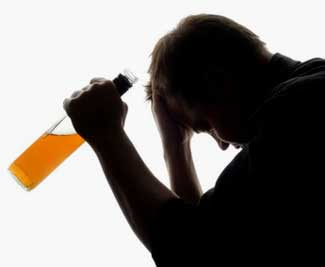 |
“Some friends don't understand this.
They don't understand how desperate I am to have
someone say, I love you and I support you just
the way you are because you're wonderful just
the way you are. They don't understand that I
can't remember anyone ever saying that to me.
I am so demanding and difficult for my friends
because I want to crumble and fall apart before
them so that they will love me even though I
am no fun, lying in bed, crying all the time,
not moving. Depression is all about If you loved
me you would.”
? Elizabeth Wurtzel, Prozac Nation |
How
may I measure my depression? |
Get Your Life Back
On Track

“If you are chronically down, it is a lifelong
fight to keep from sinking ”
? Elizabeth Wurtzel
Imagine plugging your brain into a specially
mastered Black box containing a powerful (but
absolutely safe) technology that launches you
into an incredible experience of deep inner
peace - an experience of deep meditation so
powerful...it immediately begins to create
profound, positive changes in the structure
of your nervous system...
|
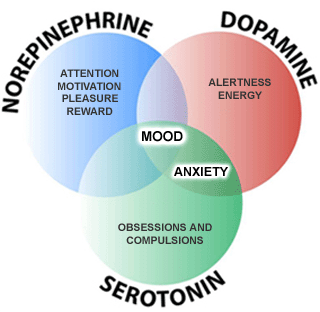
Everyone has a threshold for what they
can handle coming at them from the world. When that
threshold is exceeded, we attempt to deal with being
pushed over it with a variety of coping mechanisms,
including anxiety, anger, depression, overwhelm,
sadness, substance abuse, and many others.
“In a strange
way, I had fallen in love with my depression.
Dr. Sterling
was right
about that. I loved it because I thought
it was all I had. I thought depression
was the
part of my character that made me worthwhile.
I thought so little of myself, felt that
I had such scant offerings to give to the
world,
that the one thing that justified my existence
at all was my agony.”
? Elizabeth Wurtzel, |
When a person has trauma during childhood,
this threshold ends up being lower than if the trauma
had not happened, and the person is more often bothered
by things in their environment that might not bother
other "normal" people. This means they
exhibit, and suffer from, the above feelings and
behaviours more often. But even the person with the
normal threshold can be pushed past their threshold
from time to time, depending on what’s going
on for them.
“The sun stopped
shining for me is all. The whole story is:
I am sad. I am sad
all the
time and the sadness is so heavy that I can't
get away from it. Not ever.”
Nina LaCour, |
The
solution to all of this? Raise this threshold higher,
and this is precisely what the BT 9 does.
As this happens, your dysfunctional feelings and
behaviours happen less and less often because it
becomes less and less likely that whatever is happening
in your environment will push you over it and trigger
these feelings and behaviours in the first place.
As a result, they fall away — for good.
| "Rates of depression in women are twice
as high as they are in men. This is due in
part to hormonal
factors, particularly when it comes to premenstrual
syndrome (PMS), premenstrual dysphoric disorder
(PMDD), postpartum depression, and perimenopausal
depression. As for signs and symptoms, women
are more likely than men to experience pronounced
feelings of guilt, sleep excessively, overeat,
and gain weight. Women are also more likely to
suffer from seasonal affective disorder. " |
This is a lot like an athlete who begins with a
certain physical threshold, but raises it by training
every day until what would have overwhelmed the person
in the beginning becomes easy.
"I noticed effects from the first
day od using my BT9. I experienced a greater
sense of well being, I experienced a sense
of euphoria and also a sense that finally I
HAD found something that is making changes
to me and is living up to the facts.."
John Gardiner Utah |

Cranial
Electrotherapy, a Profound Alternative Therapy
C.E.S.- SAFE EFFECTIVE ALTERNATIVE TO DRUGS IN THE
TREATMENT OF DEPRESSION .
Cranial Electrotherapy Stimulation
(CES) is an FDA approved treatment for depression
.. Over 100 human
and eighteen animal studies have demonstrated the
effectiveness of CES in treating these and other
disorders. CES involves the introduction of a very
weak electrical current into the brain. Before you
say, "No way! Not my brain!" understand
CES is not "Shock therapy". The electrical
current used in CES/BT11 is
typically less than one milliampere. To put this
in perspective, the current needed to power a light
bulb is about 11,000 times stronger. No serious side
effects have been reported with CES.
“Mental illness is so much
more complicated than any pill that any mortal could
invent ”
? Elizabeth Wurtzel
CES
FAQ
CES is not only a drug-free treatment of these
conditions but is more effective than drugs currently
on the market, with none of their frequently debilitating
side effects.
What's 3 times better than Prozac?
CES was found to be two times more effective
in treating depression than the most effective
antidepressant drugs on the market. In fact,
CES treatment is 3 times as effective as fluoxetine
(Prozac) in the curing of depression, compared
to placebo (fake treatment).
- Gilula MF, Kirsch DF, Cranial Electrotherapy
Stimulation Review: A Safer Alternative to Psychopharmaceuticals
in the Treatment of Depression, J Neurotherapy,
2005: 9(2), pp 7-26.
|
“Depression is the most unpleasant
thing I have ever experienced. . . . It is that absence
of being able to envisage that you will ever be cheerful
again. The absence of hope. That very deadened feeling,
which is so very different from feeling sad. Sad
hurts but it's a healthy feeling. It is a necessary
thing to feel. Depression is very different.”
J.K. Rowling
Homeostasis can be defined as the tendency for intrinsic
balance within a system. Application of a therapeutic
range of microcurrent intracranially seems to enhance
the homeostasis of the biological central nervous
system. A change in one system within the individual
will have correlative effects upon other systems.
Improvements in mood, cognitive function, self image,
shift of locus of control to oneself, and sense of
well being can be measured. When CES/BT9 works, it
enhances one's ability to handle or deal with situations
that were previously beyond the range of one's control.
Electromedicine (including BT9/CES)
is designed to primarily impact the electrical
nature of the body. The current used in CES
is very similar to the electrical fields naturally
present in the body |

The efficacy of CES has been demonstrated in many
different ways. Studies have used twenty-seven different
psychometric (pencil and paper) tests including the
Minnesota Multiphasic Personality Inventory and the
State/Trait Anxiety Inventory. CES has consistently
demonstrated reductions in anxiety on these tests.
Other studies have measured the physiological manifestations
of anxiety before and after CES treatment. Slowing
of brain waves and respiration rate, as well as reduction
in blood pressure are physical signs of stress reduction
that have been documented with CES treatment.
 |
In those pamphlets that they
give at mental health centers where they list
the ten or so
symptoms that would indicate a clinical depression,
'suicide threats' or even simple 'talk of suicide'
is considered cause for concern. I guess the
point is that what's just talk one day may
become a real activity the next. So perhaps
after years
of walking around with these germinal feelings,
these raw thoughts, these scattered moments
of saying I wish I were dead, eventually I
too,
sooner or later, would succumb to the death
urge. In the meantime, I could withdraw to
my room,
could hide and sleep as if I were dead.”
Elizabeth
Wurtzel |
One
placebo-controlled study evaluated the effects
of CES treatment in twenty individuals with chronic
stress symptoms of at least a year's duration.
All
of them had failed to respond to medication. Muscle
tension, heart rate and finger temperature were
measured before, immediately after, and one week
following
a single twenty minute CES treatment. Muscle tension
and heart rate decreased and finger temperature
increased immediately after treatment in those receiving
active
CES treatment but not in the placebo (sham CES)
group. One week after treatment, those who had received
active CES treatment still had significantly reduced
muscle tension and heart rate! This is one of the
many advantages of CES over medications. Whereas
medications only work as long as they are taken,
CES effects are long lasting and cumulative.
You
don't have to be "sick" or "stressed-out" to
use the BT11/CES and realize its benefits. CES
is a life-enhancing instrument of potential value
to everyone. Its uses are wide ranging. Some people
use it as an adjunct to meditation practice each
morning. Others during peak stressor moments that
hit unexpectedly in the course of a day. Who hasn't
experienced those times when we are about to "lose
it?" Putting the unit on in these situations
even just briefly--perhaps for as little as ten
minutes-- can help curb that anxiety and serve
as a reminder that one needs to be with ones self
in a different way.
One study reported an average 92% increase
in beta-endorphins in the CSF after only 20 minutes
of a single CES treatment.
- Shealy CN, Cady RK, et al., Cerebrospinal Fluid
and Plasma Neurochemicals: Response to Cranial
Electrostimulation, J Neurol Orthop Med Surg,
1998, 18, pp 94-97. |
CES also represents a significant affirmation
that you have the power within to change your mental
state and that you are willing to take active steps
to create the time and the space to do so.
"Anxiety And Depression, when those feelings
don't go away, they're sometimes extreme
for the situation, and
you
can't seem to control them. When Anxiety
And Depression is that severe or there all
the
time, it makes it hard
to cope with daily life. These feelings:
are quite intense. often lasting for weeks,
months
or can keep going up and down over many many
years."
Now You can get your
control back |
Using waveforms
at a level of current similar to the body's own,
MET bridge cellular communications help re-establish
the normal electrical flow.
CES
FAQ
(frequently asked questions)
As with a number of medicines,
the mechanism of action (how it works) of CES
is not fully understood. Research has led to
the hypothesis that it has a mild effect on
the hypothalmic area of the brain. Researchers
also have noticed rapid increases in serotonin,
also associated with relaxation and calmness,
and decreases in cortisol, one of the primary
stress-related biochemicals. Interestingly,
CES also increases levels of norepinephrine
and dopamine, both associated with alertness
and feelings of pleasure. This may be why so
many CES users report feeling both relaxed
and alert and slight to moderate euphoria after
use. |
CES Cranial Electro Stim Tools |
Frequencies
FREQUENCIES (Alpha Theta
Stim³ and BT plus)
0.5Hz The 0.5Hz DELTA brainwave
frequency, normally associated with deep
sleep and release of deeply embedded stress
patterns. May help with pain relief (temporarily),
natural opiates released, supports the
immune system, stress buster.
1.5Hz May experience pain
relief and can promote quiet sleep
5.0Hz ‘In the Palaces
of Memory’ they suggest 5Hz as being
the optimum learning frequency. Even as
you read these words, a tiny portion of
your brain is physically changing. New
connections are being sprouted – a
circuit that will create a stab of recognition
if you encounter the words again. Supports
the body to repair and heal.
Read “In The Palaces of Memory” by George Johnson.
7.83Hz The 7.83Hz Alpha
Theta (border) brainwave frequency and
it’s associated with a relaxed, but
very focused mental state. This is also
the Schumann frequency. Ideal for meditation
and relaxation.
100Hz Feel better, blast
those moods!
BT11 frequencies Brain tuner,
endorphin release, natural mood enhancer.
Read “Hooked?” by
Dr. Meg Patterson
CURRENT 10 to 600µA
WAVEFORM Bipolar asymmetric
rectangular waves, 50% duty cycle
INTENSITY CONTROL 20 steps
|
|
|

